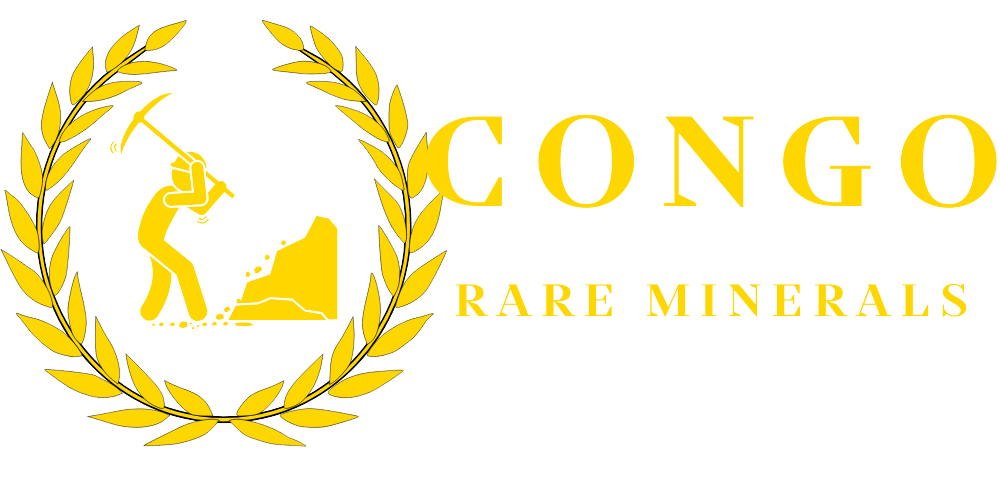Introduction: trust is the new premium
In today’s market, investors don’t just ask “can I buy gold?” They ask “can I prove it’s ethical?” Banks, refineries, and institutional desks now require conflict-free documentation, audit-ready files, and clean logistics. African suppliers that meet these bars don’t just avoid risk they win deals and often command better prices.
Congo Rare Minerals (CRM) positions buyers on the right side of this shift: source-direct bullion from the DRC with a full paper trail and settlement on independent refinery assay.
Why “ethical gold” is winning
1) Compliance unlocks counterparties
Refiners, insurers, and payment partners move faster when provenance is clear. That means tighter spreads, fewer delays, and more competitive bids.
2) Reputation travels
Funds and family offices prefer counterparties that pass audits the first time. Clean files save time and reduce operational headaches.
3) Better resale liquidity
Documented bars with serials, assays, and chain-of-custody records are easier to resell and finance. That support shows up in your exit price.
The frameworks that matter (and how to meet them)
OECD Due Diligence Guidance (5 steps)
- Build systems → Assess risks → Mitigate → Audit → Report.
Most global hubs and top refiners now expect suppliers to follow this playbook. If your paperwork mirrors these steps, you speak the industry’s language.
LBMA Responsible Gold Guidance (RGG)
LBMA-accredited refiners require RGG-aligned documentation. If you plan to deliver to LBMA facilities, assume you’ll need counterpart screening, risk mapping, and assurance evidence.
Fairtrade / Fairmined (where applicable)
For select small-scale supply chains, these labels add social-impact credentials buyers value. Even if your metal isn’t certified under these schemes, aligning your practices to their principles improves trust.
Bottom line: These standards are no longer “nice to have.” They are de facto requirements for serious buyers.
Why Africa and the DRC offer a real edge
Africa is “endowed with vast, underexplored mineral resources.” The DRC alone is widely cited with about $24 trillion in untapped minerals, and estimates suggest roughly 90% remain unexploited. For investors, that signals long runway for supply growth provided the metal is moved legally and documented well. Ethical African suppliers that prove origin and compliance can scale relationships with banks, refiners, and institutional desks across the UAE, Europe, China, and the USA.
The Source Advantage with Congo Rare Minerals
What makes CRM different
- Direct from the mine: We sell source-direct from licensed DRC operations, cutting out layers of dealers that add cost and blur provenance.
- Audit-ready files: Chain-of-custody logs, export permits, invoices, packing lists, insurance, and independent refinery assay on arrival organized and reconciled.
- Compliant routing: Shipments move via Uganda for export processing, then to mutually approved refineries in Dubai, Switzerland, Europe, China, or the USA.
- LBMA-linked settlement: Contracts reference LBMA spot with agreed differentials by form, route, and quantity. Final settlement follows independent assay.
Highlighted advantages
- Source direct from the DRC
- Fully verified provenance
- Assay-on-arrival settlement
- Contracts that pass institutional due diligence
How compliance becomes a pricing advantage
- Fewer exceptions = lower friction costs. Clean paperwork shortens cycle time from shipment to funds.
- Wider buyer pool = tighter bid/ask. More counterparties comfortable with your metal means stronger pricing power.
- Banking and insurance access. Ethical files open accounts, credit lines, and coverages many traders struggle to secure.
- Reputation compounds. Each clean delivery builds a track record that supports better terms on the next deal.
Practical checklist for buyers and exporters
Policy & contracts
- Adopt an OECD-aligned policy; embed flow-down clauses with suppliers.
- Include audit rights, KYC/KYB, sanctions and labor screening in the SPA.
- Specify assay protocol, receiving refinery, and LBMA-linked settlement.
Documentation pack
- Mine-of-origin proof, chain-of-custody, export license, invoice, packing list, airway bill, insurance.
- Independent assay results reconciled to shipped weights.
- Screening memos for sanctions/illicit trade/forced labor (keep them current).
Operations
- Pre-book assay windows at the receiving refinery.
- Confirm HS codes and customs declarations with your broker.
- Track bar serials and custody hand-offs to keep the audit trail intact.
Product forms & use cases
- Bullion bars (strategic reserves, treasury, collateral)
- Doré (refinery intake with agreed protocols)
- Dust & nuggets (where appropriate under contract, with enhanced documentation)
Purities typically 96%–99.99%, confirmed at delivery.
FAQ
Do I need an LBMA certificate to sell?
You need LBMA-aligned documentation to deliver to LBMA refiners or trade with buyers who rely on LBMA assurance. Many will not proceed without it.
Is a “conflict-free” letter enough?
No. Auditors expect a complete file: chain-of-custody, licenses, transport docs, and independent assay structured to OECD steps.
Can CRM deliver to my preferred refinery or vault?
Yes. We deliver to mutually approved refineries in major hubs and can coordinate vaulting per mandate.
How is pricing set?
Contracts reference LBMA spot plus/minus agreed differentials for product, route, and volume. Settlement follows independent refinery assay.
Conclusion & CTA
Ethical sourcing isn’t just compliance it’s competitive edge. If you need conflict-free gold from Africa with paperwork that passes and pricing that reflects fewer middlemen, start at the source.
Stop paying for uncertainty. Buy documented, deliverable metal.
Contact Congo Rare Minerals to plan volumes, routes, and assay-on-arrival settlement to your preferred refinery.
